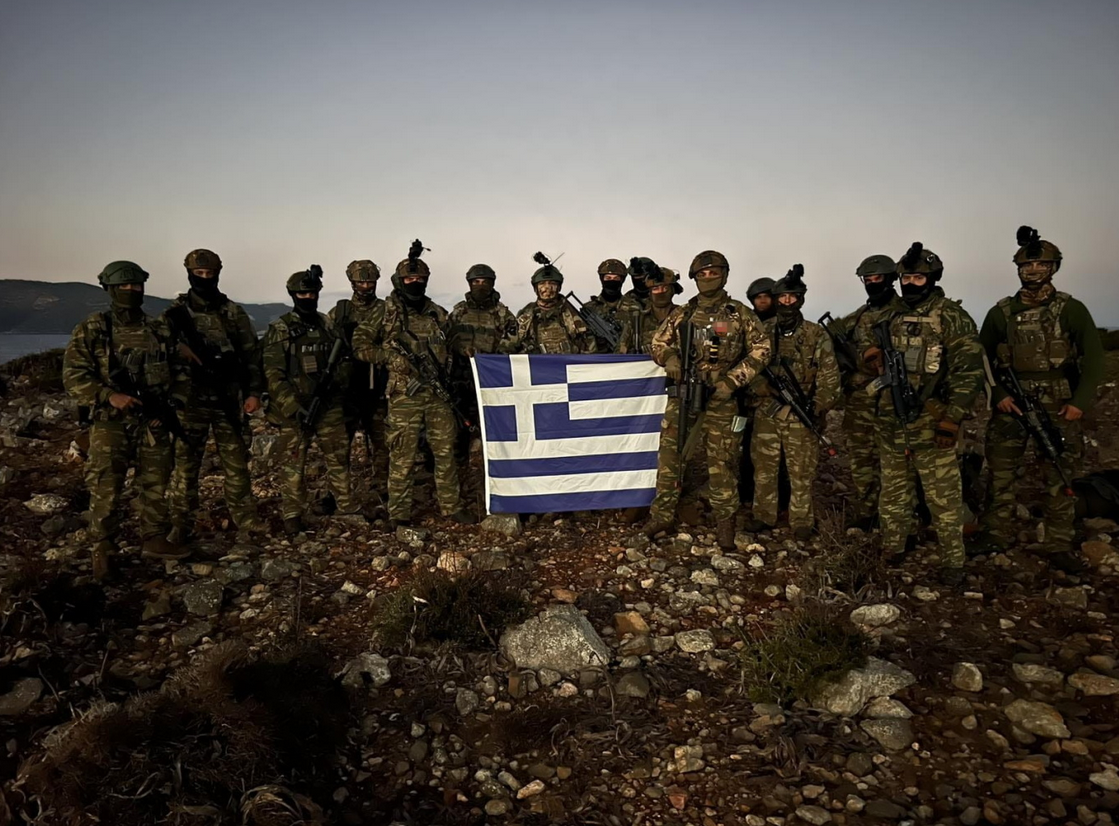Yannick Alléno: The luxury of a dish lies in its taste, not in excess
Source: ProtoThema English
On a summer evening of high aesthetics, Sani Gourmet at Sani Resort welcomed Yannick Alléno — a chef whose portfolio includes multiple restaurants awarded a total of 17 Michelin stars. For the first time in Greece, he presented his philosophy in a dinner that combined technique, elegance, and finesse. On the sidelines of the meal, the chef spoke to us about his journey, his influences, and today’s gastronomy.
Born in Paris, he draws inspiration from French tradition and the philosophy of Auguste Escoffier, while building his own culinary identity through pioneering techniques such as extraction. “For me, the kitchen has always been a feeling of intimacy, like my home,” he confesses. “I grew up surrounded by the energy of restaurants — this shaped my identity from an early age. The moment I decided to truly dedicate myself to cooking was when I realized it could evoke emotions, tell stories, and create unforgettable experiences. That’s when cooking stopped being just a passion and became the path of my life.”

Memory, he emphasizes, is the foundation of his creativity. “I often return to flavors from my childhood or pivotal moments in my life. But my role as a chef is not to reproduce them mechanically. It’s to reinterpret them through innovation and give them new meaning on the plate.”
In 2008, he founded the Yannick Alléno Group, a hub for innovation and the training of new talent. In 2014, he took over the historic Pavillon Ledoyen in Paris, creating three Michelin-starred restaurants there and making Pavillon Ledoyen the most highly awarded independent venue — in terms of Michelin stars — in the world. At the same time, he maintains two three-star restaurants, including Le 1947 in Courchevel, and is the second most awarded chef in the world.
For him, innovation is vital, as it keeps gastronomy alive. “With techniques such as ‘extraction,’ we can isolate and highlight the pure flavor of ingredients in a completely new way, thus discovering the essence of a product without relying on fats.”

Beyond the kitchens of his restaurants, his philosophy also “travels” to more unexpected places, such as Qatar Airways flights and the iconic Orient Express. As he tells us, the challenge in such collaborations is to maintain your identity. “Even 30,000 feet above the ground or aboard a train, the goal is to convey the experience of haute cuisine with respect and consistency — adapted, of course, to the given context and brand.”
Haute cuisine with a modern conscience
What does Alléno think about haute cuisine in today’s world? For him, haute cuisine should be the place where tradition meets the future. It must preserve its fundamental values — precision, technique, and excellence — while also embracing science, sustainability, and cultural exchange. He believes the times demand a departure from outdated codes and a shift toward a responsible, meaningful cuisine that responds to today’s needs and values.
Moreover, the culinary world is changing rapidly: “Modern guests seek authenticity and transparency: to know the origin of ingredients and the values behind the dish. Simplicity is making a comeback — not as poverty, but as quality, technique, and essence,” Alléno concludes.

The power of simplicity
One of the hallmarks of the chef’s cuisine is his use of simpler ingredients, such as peas or lentils. This choice may seem unusual to some, but as he emphasizes: “Luxury lies in taste, not in excess.” According to Alléno, simple ingredients, when approached with technique and respect, can become exceptional. Highlighting simplicity is more honest and more contemporary, especially in an era that places importance and sustainability at its core.

With a presence in major cities such as Paris, Monaco, and London, Alléno brings his philosophy to different parts of the world, adapting it to each local culture. As he characteristically notes: “We follow the 70/30 principle: 70% of our identity remains constant, and 30% adapts to the local environment. Terroir is not just geography — it’s the culture, history, and the people who cultivate it.”
A philosophy that extends beyond the kitchen
His cooking is based on intensity, purity, and movement. But for the chef, the most important thing is transmission — not only of technique but also of the culture of excellence and collaboration. “More than 40 chefs who trained with us have earned their own Michelin stars. That is the most important legacy,” he stresses.

When asked what gives him greater satisfaction — a Michelin star or a satisfied customer — his answer is twofold: “Both are important. A customer’s satisfaction is immediate, emotional, and personal. But stars represent long-term recognition of collective work. I am incredibly proud of our 17 stars — not for myself, but because they reflect the dedication and talent of everyone in the team, from chefs and pastry chefs to sommeliers and front-of-house staff. It’s recognition I share with them.”
Yannick Alléno’s presence in Greece was not simply a showcase of technique. It was an experience of depth, consistency, and grace. His menu proved that haute cuisine can be at once approachable and complex, disciplined and generous. As he told us about the dinner: “That evening I saw smiles. I saw happy people. That is my mission: to try to make the world happy through food.”
Ask me anything
Explore related questions
The original article: belongs to ProtoThema English .



